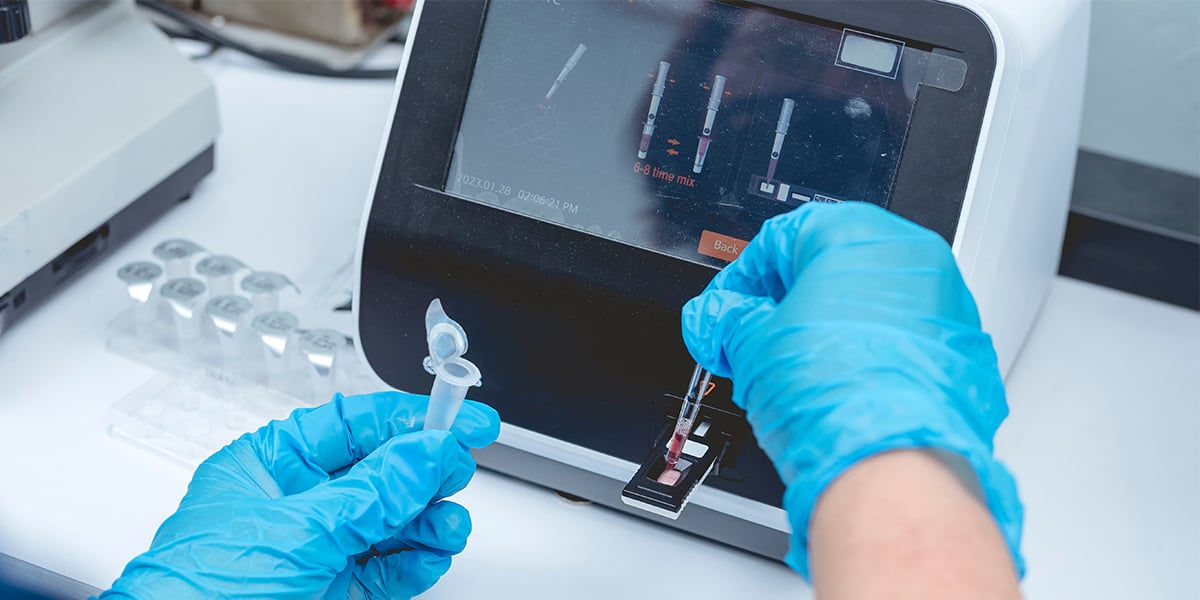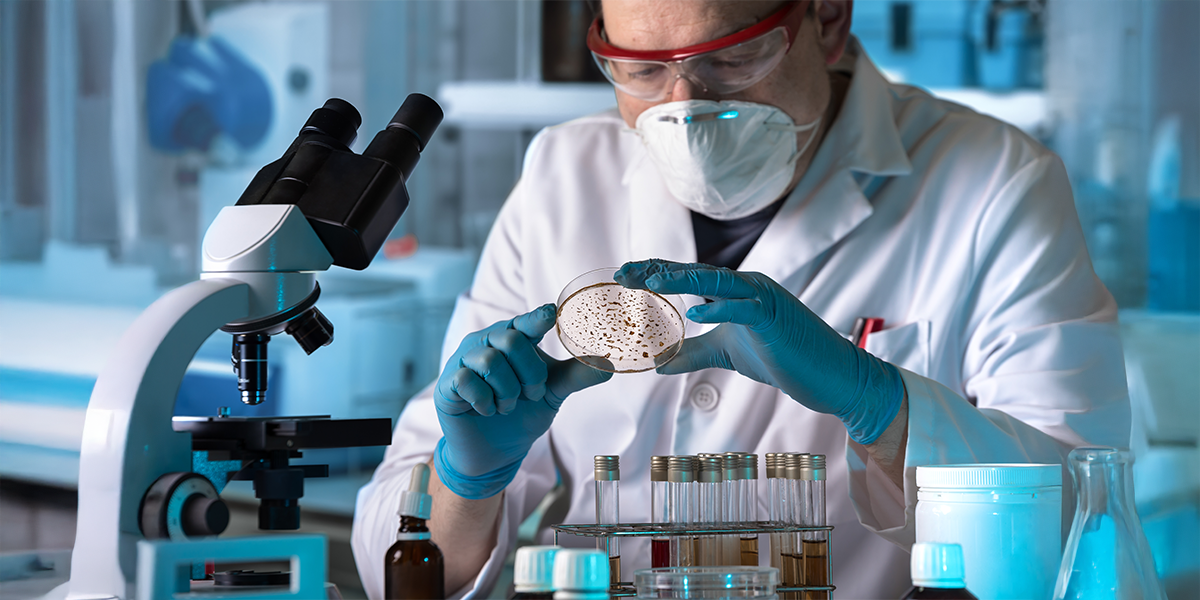Selecting a Pump for Hematology Analyzers
Key Takeaways / Highlights Piston pumps(rotating and reciprocating) offer unmatched precision, chemical resistance, and longevity—ideal for...
2 min read
Stephanie Moreau : Updated on July 22, 2025

Modern medical diagnostics relies heavily on speed, accuracy, and efficiency - especially in clinical laboratories. Two vital players in this high-stakes field are immunoassay analyzers and clinical chemistry analyzers. Though they serve different roles, both are essential in analyzing patient samples to guide diagnosis and treatment. What often goes unseen, though, is the behind-the-scenes engineering that makes these devices so reliable.
In this blog, we will explore what these analyzers do and how Fluid Metering piston pumps help elevate their performance.
What Are Clinical Chemistry and Immunoassay Analyzers?
Clinical Chemistry Analyzers
These devices measure chemical components in biological fluids (mainly blood or urine). Parameters like glucose, cholesterol, enzymes, and electrolytes are common targets. Clinical chemistry analyzers help diagnose conditions like diabetes, liver disease, and kidney dysfunction.
They typically use methods like spectrophotometry, potentiometry, and colorimetry to quantify analytes. The process must be precise, often requiring microliter-level liquid handling, rapid mixing, and controlled reactions.
Immunoassay Analyzers
Immunoassay analyzers focus on detecting and quantifying specific proteins, hormones, or drugs, including insulin, TSH (thyroid-stimulating hormone), or even COVID-19 antibodies. These systems rely on the specificity of antigen-antibody interactions.
Common immunoassay methods include:
Immunoassay analyzers are widely used in endocrinology, oncology, infectious disease testing, and therapeutic drug monitoring.
The Role of Fluid Metering Piston Pumps in These Analyzers
While the spotlight is often on reagents and detection techniques, fluid handling is the heartbeat of any analyzer. This is where Fluid Metering piston pumps come in.
What Is a Piston Pump?
A piston pump uses a rotating, reciprocating piston to move fluids through a chamber. As the piston moves back and forth, it draws in and pushes out precise volumes of liquid - much like a syringe, but without the frequent maintenance needs and unwanted downtime.
Why Piston Pumps Matter
Immunoassay analyzers and clinical chemistry analyzers are essential tools in modern diagnostics, each providing critical insights into patient health, but their precision and reliability wouldn’t be possible without the seamless integration of engineering solutions like Fluid Metering pumps. Fluid Metering pumps ensure accurate fluid handling, efficient operation, and long-term reliability, all of which are essential in the fast-paced world of clinical diagnostics.
So, the next time you receive a blood test result, remember: it’s not just science and medicine at work - it's precision engineering too. Contact us today to explore how Fluid Metering's innovative pump solutions can elevate the accuracy and efficiency of your diagnostic devices.

Key Takeaways / Highlights Piston pumps(rotating and reciprocating) offer unmatched precision, chemical resistance, and longevity—ideal for...

1 min read
Key Takeaways: For microbiology analyzer pump selection, accuracy, sterility, and chemical compatibility are essential—Fluid Metering’s FENYX® and...

Key Takeaways: Fluid Metering’s precision pumps for clinical chemistry analyzers deliver microliter-level accuracy, continuous smooth flow, and...